
The Vibrant Heart of San Salvador: Colonia Escalón
Welcome to Colonia Escalón, a bustling and vibrant neighborhood in the heart of San Salvador, El Salvador. Known for its dynamic blend of modernity and tradition, Colonia Escalón is the perfect destination for tourists seeking an exciting and authentic Salvadoran experience. The neighborhood boasts a rich array of attractions, from shopping centers and fine dining establishments to cultural landmarks and green spaces. Start your exploration at the iconic Plaza Futura, a modern complex featuring an array of restaurants, cafes, and shops. The plaza offers breathtaking views of the city and is a great spot to relax and take in the local atmosphere. For those interested in art and culture, a visit to the nearby Museo de Arte de El Salvador (MARTE) is a must. The museum showcases a diverse collection of contemporary and historical artworks that provide insight into the country's rich artistic heritage. Nature lovers will appreciate the lush greenery of Parque Bicentenario, a serene escape from the urban hustle. The park is perfect for a leisurely stroll or a picnic, offering a peaceful retreat within the city. Don't miss the chance to visit the impressive Monumento al Divino Salvador del Mundo, a symbol of national pride and a popular spot for photos. With its unique blend of attractions, Colonia Escalón promises an unforgettable experience for every traveler.
Local tips in Colonia Escalon
- Visit Plaza Futura in the evening for stunning city views and a lively atmosphere.
- Allocate a few hours for Museo de Arte de El Salvador (MARTE) to fully appreciate its extensive art collections.
- Bring comfortable walking shoes for exploring Parque Bicentenario's trails and pathways.
- Try local dishes at one of the many restaurants in Colonia Escalón for an authentic Salvadoran culinary experience.
- Be mindful of peak traffic times when planning your visit to avoid delays.
The Vibrant Heart of San Salvador: Colonia Escalón
Welcome to Colonia Escalón, a bustling and vibrant neighborhood in the heart of San Salvador, El Salvador. Known for its dynamic blend of modernity and tradition, Colonia Escalón is the perfect destination for tourists seeking an exciting and authentic Salvadoran experience. The neighborhood boasts a rich array of attractions, from shopping centers and fine dining establishments to cultural landmarks and green spaces. Start your exploration at the iconic Plaza Futura, a modern complex featuring an array of restaurants, cafes, and shops. The plaza offers breathtaking views of the city and is a great spot to relax and take in the local atmosphere. For those interested in art and culture, a visit to the nearby Museo de Arte de El Salvador (MARTE) is a must. The museum showcases a diverse collection of contemporary and historical artworks that provide insight into the country's rich artistic heritage. Nature lovers will appreciate the lush greenery of Parque Bicentenario, a serene escape from the urban hustle. The park is perfect for a leisurely stroll or a picnic, offering a peaceful retreat within the city. Don't miss the chance to visit the impressive Monumento al Divino Salvador del Mundo, a symbol of national pride and a popular spot for photos. With its unique blend of attractions, Colonia Escalón promises an unforgettable experience for every traveler.
Iconic landmarks you can’t miss
Monument to the Divine Savior of the World
An iconic landmark in El Salvador's capital, symbolizing faith, resilience, and national identity on the Plaza El Salvador del Mundo.
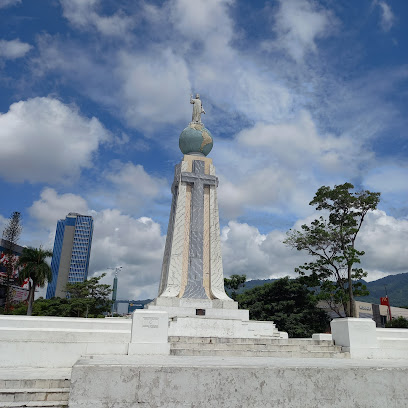
Plaza Salvador del Mundo
Discover Plaza Salvador del Mundo in San Salvador: a vibrant cultural hub, home to the iconic Monument to the Divine Savior of the World.
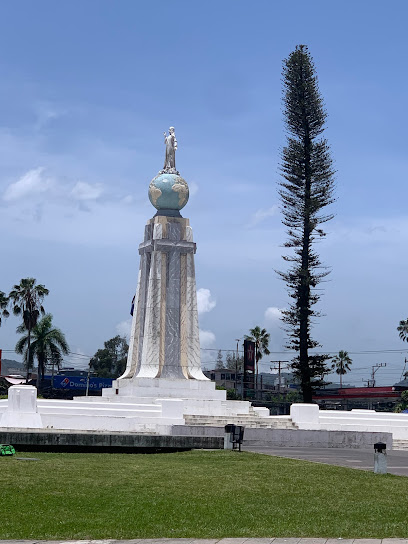
Parque del Bicentenario
Escape to nature in the city: Parque del Bicentenario offers recreation, relaxation, and a breath of fresh air in San Salvador.
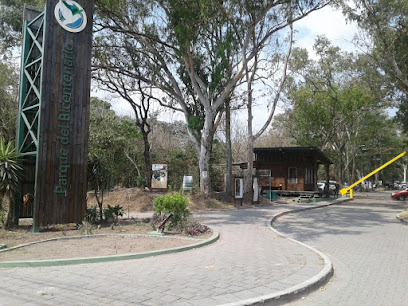
Maquilishuat Park
Escape to nature in the heart of San Salvador at Maquilishuat Park, a vibrant urban oasis named after El Salvador's national tree.
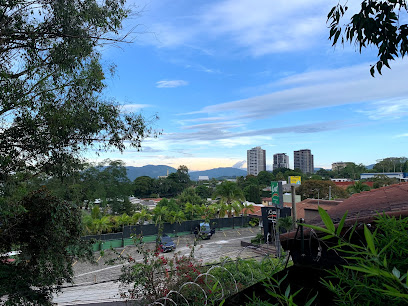
Beethoven's Fountains
Escape to Beethoven's Fountains in San Salvador: a serene park with dancing fountains, lush gardens, and a vibrant cultural atmosphere.
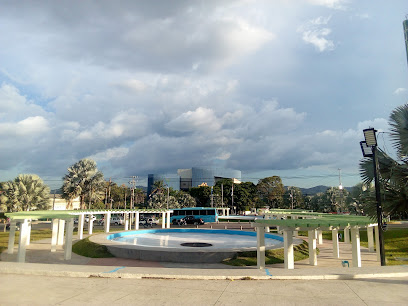
Monument to the Constitution of El Salvador
A monumental sculpture in San Salvador honoring El Salvador's constitution, reflecting the nation's spirit and commitment to justice.
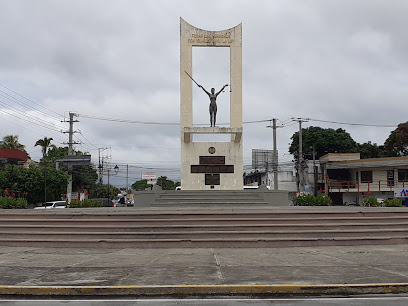
Masferrer Roundabout
Escape the city bustle at Masferrer Roundabout, a green oasis in San Salvador offering tranquility and cultural charm.
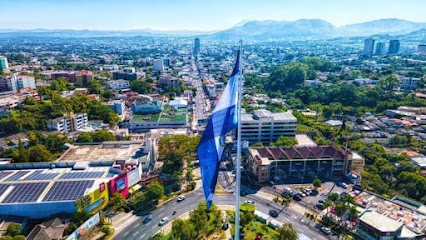
Millennium Tower
Experience breathtaking views and modern architecture at Millennium Tower, a must-visit destination in San Salvador, El Salvador.
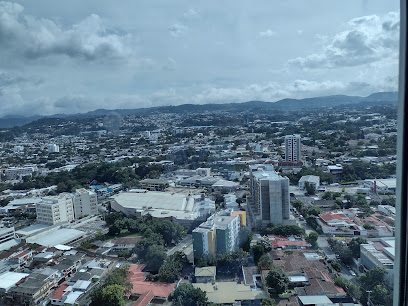
Monumento a la Revolucion
Discover El Salvador's Monumento a la Revolución in San Salvador: a landmark of freedom, resilience, and rich history.
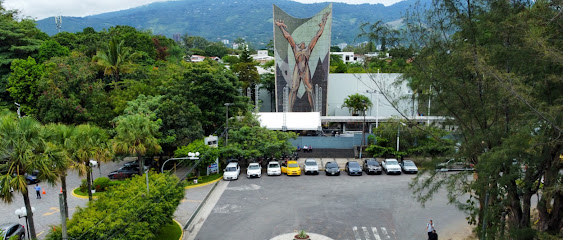
Plaza Oriental Republic of Uruguay
Find serenity in San Salvador at Plaza Oriental Republic of Uruguay, a peaceful park in Colonia Escalon perfect for relaxation and reflection.
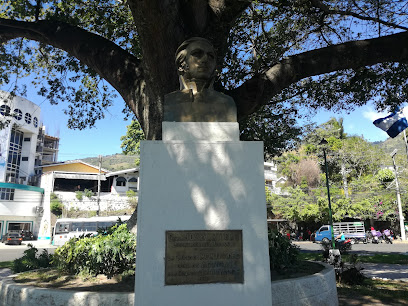
Unmissable attractions to see
Monument to the Divine Savior of the World
Explore the Monument to the Divine Savior of the World in San Salvador, a stunning symbol of faith and unity amidst vibrant local culture.

Plaza Salvador del Mundo
Experience the vibrant culture and history at Plaza Salvador del Mundo, a must-visit park and tourist attraction in San Salvador.
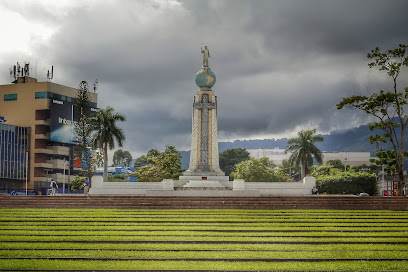
Parque del Bicentenario
Discover the beauty of nature at Parque del Bicentenario, an ecological park in San Salvador, perfect for relaxation and wildlife spotting.
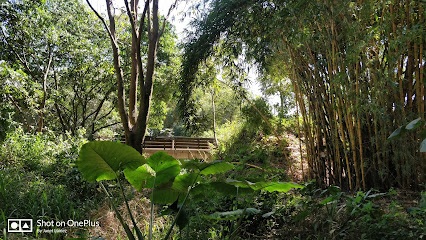
Liberty Plaza
Explore Liberty Plaza, San Salvador's picturesque park, where culture, nature, and community intersect for an unforgettable experience.
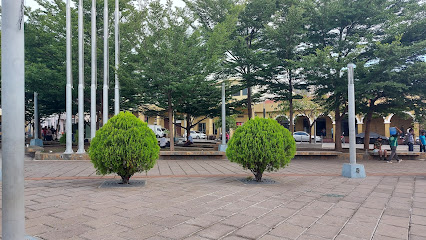
Tin Marin, Children's Museum
Experience the joy of learning through play at Tin Marin, San Salvador's premier children's museum, where imagination knows no bounds.
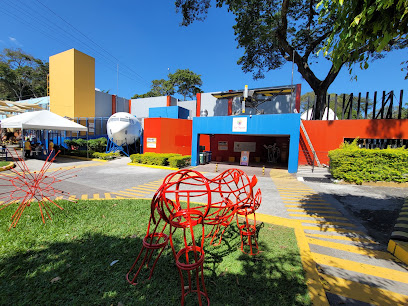
Railway Museum and Theme Park
Explore the fascinating world of railways at the Railway Museum and Theme Park in San Salvador, where history meets thrill in a family-friendly environment.
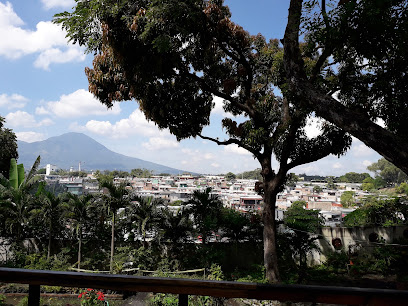
Zona Rosa San Salvador
Experience the vibrant culture, nightlife, and culinary delights of Zona Rosa in San Salvador, a must-visit destination for every traveler.
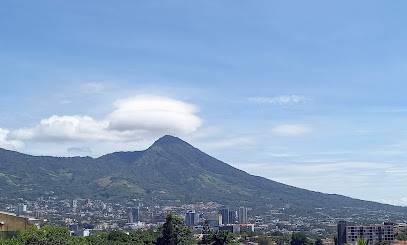
Essential places to dine
La Pampa Restaurant
Experience authentic Argentinian cuisine at La Pampa Restaurant in San Salvador – where every bite tells a delicious story.
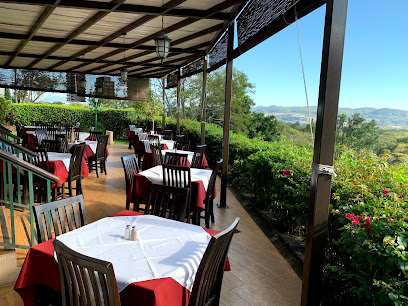
Beto's restaurant
Discover Beto's Restaurant in San Salvador - A seafood paradise offering fresh flavors and an authentic dining experience.
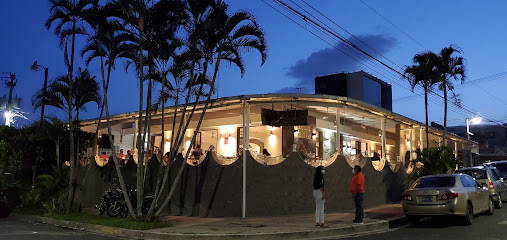
Parrilla Urbana
Experience authentic Salvadoran cuisine at Parrilla Urbana, where every bite is infused with local flavors and grilled perfection.
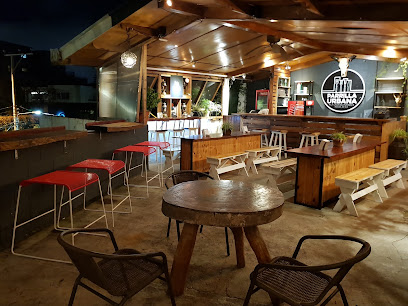
Kamakura
Discover authentic Japanese cuisine at Kamakura in San Salvador, where every dish tells a story and every bite is a delight.
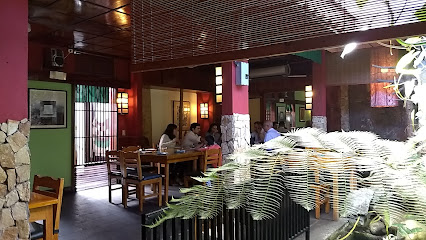
Jorner
Experience culinary innovation at Jorner in San Salvador—a must-visit gastropub blending local flavors with global cuisine.
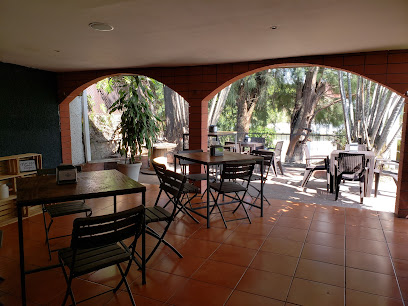
El Corte Fino
Experience the flavors of El Salvador at El Corte Fino—where exceptional meats meet vibrant ambiance in San Salvador's dining scene.
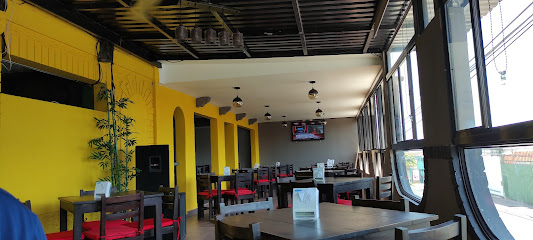
Restaurante El Bodegón
Experience exquisite dining at Restaurante El Bodegón in San Salvador – where local flavors meet culinary excellence.
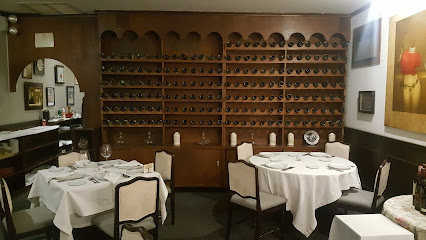
El Veggie SV | Escalón
Discover delicious plant-based dishes at El Veggie SV in Escalón, where fresh ingredients meet innovative vegan cuisine.
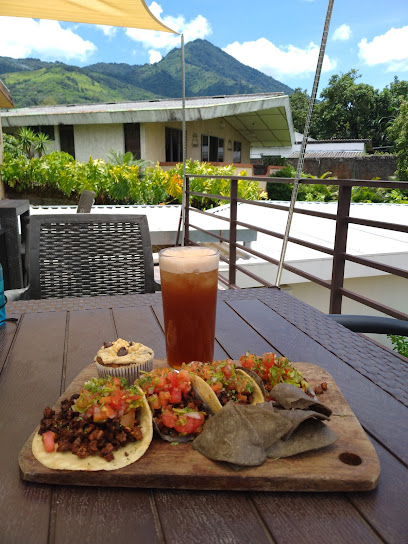
Boquitas Food And Drinks
Experience authentic Salvadoran cuisine at Boquitas Food And Drinks, where vibrant flavors meet a lively atmosphere in San Salvador.
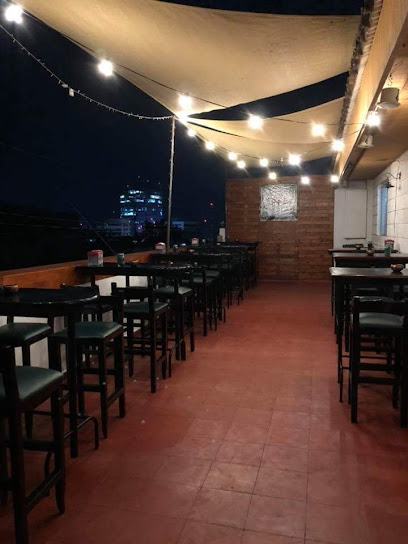
Casa Babylon
Discover Casa Babylon: A vibrant restaurant in San Salvador serving authentic Salvadoran cuisine amidst an inviting atmosphere.
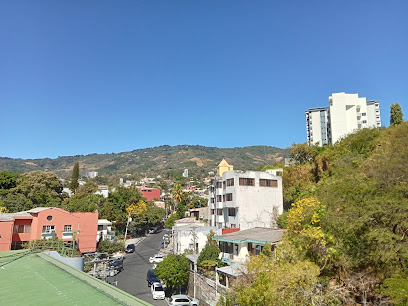
Markets, malls and hidden boutiques
Galerias Mall
Explore Galerias Mall, San Salvador's vibrant shopping destination featuring diverse stores, delicious dining options, and exciting entertainment for all ages.
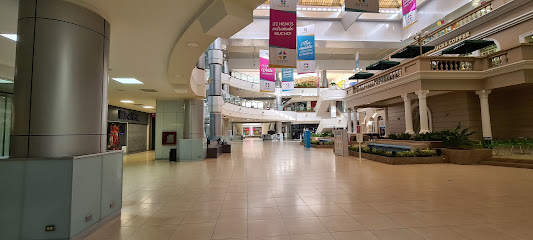
Villas Españolas Mall
Experience the vibrant shopping scene at Villas Españolas Mall in San Salvador, featuring a wide selection of outlets and dining options.
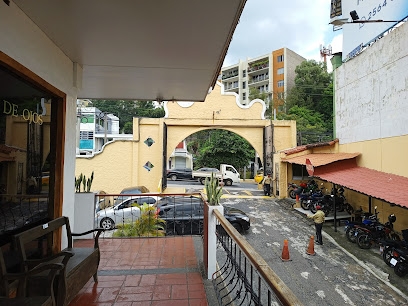
Balam Quitze Mall
Experience the vibrant shopping scene at Balam Quitze Mall, San Salvador's premier outlet destination for great deals and family-friendly fun.
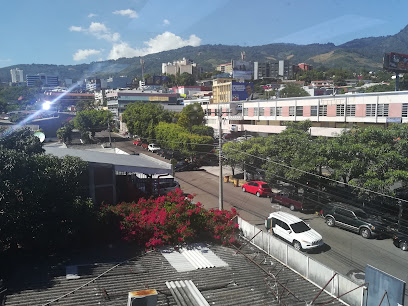
Shopping Center
Explore the vibrant Shopping Center in San Salvador for unique clothing finds and a taste of local culture, perfect for every tourist's itinerary.
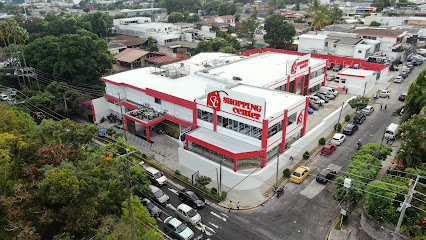
DISEÑO • Paseo Escalón
Explore DISEÑO • Paseo Escalón, your go-to art supply store in San Salvador for all creative needs, from materials to inspiration.

Bunny Box Regalos El Salvador
Discover unique gifts and artisanal crafts at Bunny Box Regalos, the ultimate destination for souvenirs in San Salvador.
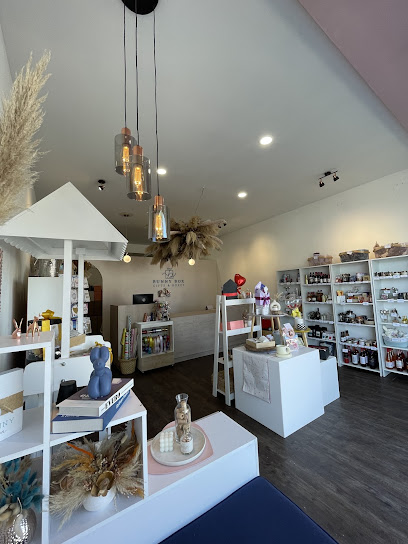
Pallet & Home Decor
Explore Pallet & Home Decor in San Salvador for unique home goods that blend local artistry with sustainable practices.

Gorgeous Escalón
Explore the vibrant fashion scene at Gorgeous Escalón, where Salvadoran culture meets contemporary style in San Salvador.

Los Castaños Mall
Discover unbeatable deals and a vibrant shopping experience at Los Castaños Mall in San Salvador, where every visit is a new adventure.

FABIOS BOUTIQUE
Discover unique fashion at Fabio's Boutique in San Salvador's Centro Comercial Galerías, where local style meets personalized service.
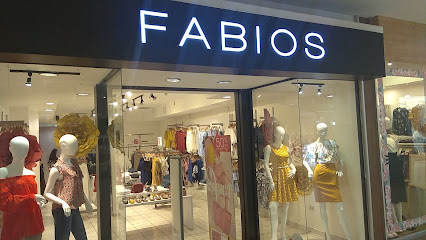
Essential bars & hidden hideouts
Republik Bar
Discover the lively atmosphere of Republik Bar in San Salvador, a perfect blend of an Irish pub and concert hall for unforgettable nights.
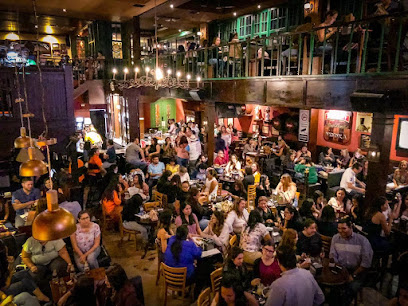
Jorner
Experience the best of local and international flavors at Jorner, the premier gastropub in San Salvador's Colonia Escalón.
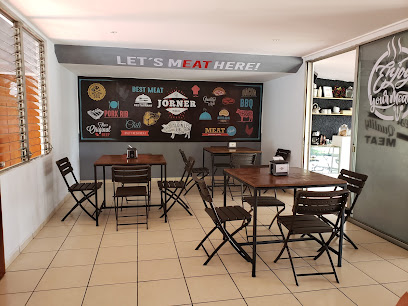
Funky Club
Funky Club: Your Ultimate Destination for Nightlife in San Salvador, Featuring Eclectic Music, Delicious Cocktails, and an Energetic Atmosphere.

Chiringuito Cocktails Bar
Discover the vibrant Chiringuito Cocktails Bar in San Salvador, where exceptional cocktails and a lively atmosphere promise an unforgettable experience.
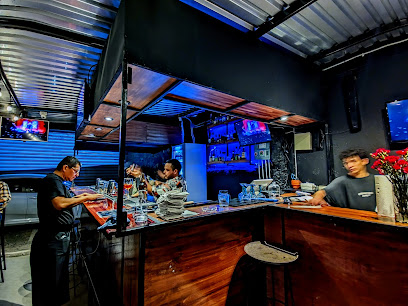
Alegorias Speakeasy Bar
Discover the culinary delights of Alegorias Speakeasy Bar in San Salvador, where exquisite grilled dishes meet a vibrant speakeasy atmosphere.
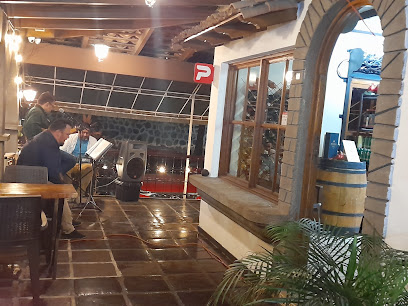
Jungla Beer Garden
Experience the vibrant flavors and lively atmosphere at Jungla Beer Garden in San Salvador, perfect for food lovers and socializers alike.

Figue's Burgers & Wings
Discover the ultimate burger and wing experience at Figue's Burgers & Wings in San Salvador, where flavor meets fun in a lively atmosphere.

CURANDERO BAR
Experience the vibrant nightlife of San Salvador at Curandero Bar, where culture, cocktails, and camaraderie come together for an unforgettable evening.

Wachá bar
Experience the vibrant nightlife of San Salvador at Wachá Bar, where local flavors and a lively atmosphere blend seamlessly for an unforgettable evening.

Índigo Gastrolounge
Explore the vibrant flavors of El Salvador at Índigo Gastrolounge, where culinary creativity meets a lively bar atmosphere.

Local Phrases
-
- HelloHola
[oh-lah] - GoodbyeAdiós
[ah-dee-ohs] - YesSí
[see] - NoNo
[noh] - Please/You're welcomePor favor/De nada
[por fah-bor/deh nah-dah] - Thank youGracias
[grah-see-ahs] - Excuse me/SorryDisculpe/Perdón
[dees-cool-peh/pehr-dohn] - How are you?¿Cómo estás?
[koh-moh ehs-tahs] - Fine. And you?Bien. ¿Y tú?
[byen. ee too] - Do you speak English?¿Hablas inglés?
[ah-blahs een-glays] - I don't understandNo entiendo
[noh ehn-tee-ehn-doh]
- HelloHola
-
- I'd like to see the menu, pleaseMe gustaría ver el menú, por favor
[meh goos-tah-ree-ah behr ehl meh-noo, por fah-bor] - I don't eat meatNo como carne
[noh koh-moh kahr-neh] - Cheers!¡Salud!
[sah-lood] - I would like to pay, pleaseMe gustaría pagar, por favor
[meh goos-tah-ree-ah pah-gahr, por fah-bor]
- I'd like to see the menu, pleaseMe gustaría ver el menú, por favor
-
- Help!¡Ayuda!
[ah-yoo-dah] - Go away!¡Vete!
[veh-teh] - Call the Police!¡Llama a la Policía!
[yah-mah ah lah poh-lee-see-ah] - Call a doctor!¡Llama a un doctor!
[yah-mah ah oon dohk-tohr] - I'm lostEstoy perdido/a
[ehs-toy pehr-dee-doh/ah] - I'm illEstoy enfermo/a
[ehs-toy ehn-fehr-moh/ah]
- Help!¡Ayuda!
-
- I'd like to buy...Me gustaría comprar...
[meh goos-tah-ree-ah kohm-prahr...] - I'm just lookingSolo estoy mirando
[soh-loh ehs-toy mee-rahn-doh] - How much is it?¿Cuánto cuesta?
[kwan-toh kwehs-tah] - That's too expensiveEso es demasiado caro
[eh-soh ehs deh-mah-see-ah-doh kah-roh] - Can you lower the price?¿Puede bajar el precio?
[pweh-deh bah-har ehl pree-see-oh]
- I'd like to buy...Me gustaría comprar...
-
- What time is it?¿Qué hora es?
[keh oh-rah ehs] - It's one o'clockEs la una
[ehs lah oo-nah] - Half past (10)Son las diez y media
[sohn lahs dyehs ee meh-dee-ah] - MorningMañana
[mah-nyah-nah] - AfternoonTarde
[tahr-deh] - EveningNoche
[noh-cheh] - YesterdayAyer
[ah-yehr] - TodayHoy
[oy] - TomorrowMañana
[mah-nyah-nah] - 1Uno
[oo-noh] - 2Dos
[dohs] - 3Tres
[trehs] - 4Cuatro
[kwah-troh] - 5Cinco
[seen-koh] - 6Seis
[says] - 7Siete
[see-eh-teh] - 8Ocho
[oh-choh] - 9Nueve
[nweh-veh] - 10Diez
[dyehs]
- What time is it?¿Qué hora es?
-
- Where's a/the...?¿Dónde está...?
[dohn-deh ehs-tah] - What's the address?¿Cuál es la dirección?
[kwal ehs lah dee-rehk-syohn] - Can you show me (on the map)?¿Puedes mostrarme (en el mapa)?
[pweh-dehs mohs-trar-meh (ehn ehl mah-pah)] - When's the next (bus)?¿Cuándo es el próximo (autobús)?
[kwan-doh ehs ehl proh-see-moh (ow-toh-boos)] - A ticket (to ....)Un boleto (para ....)
[oon boh-leh-toh (pah-rah)]
- Where's a/the...?¿Dónde está...?
History of Colonia Escalon
-
Colonia Escalon was developed in the mid-20th century as part of a broader urban expansion in San Salvador. The neighborhood was designed as an upscale residential area, reflecting the post-war economic boom in El Salvador. Its planning included wide streets, green spaces, and modern amenities, making it an attractive location for the burgeoning middle and upper classes of the city.
-
Throughout the late 20th century, Colonia Escalon became known as a cultural and social hub within San Salvador. With its proximity to key institutions such as the Universidad Centroamericana José Simeón Cañas (UCA) and various cultural centers, the neighborhood attracted a vibrant community of students, artists, and intellectuals. This contributed to a rich tapestry of cultural events, art exhibitions, and social movements in the area.
-
During the Salvadoran Civil War (1980-1992), Colonia Escalon was not immune to the political unrest that gripped the country. While the neighborhood itself was primarily residential, the broader context of violence and upheaval permeated the lives of its residents. Many families were affected by displacement, and the area saw an influx of people seeking refuge from war-torn regions of San Salvador.
-
In the aftermath of the civil war, Colonia Escalon underwent significant reconstruction and revitalization efforts. The peace agreements led to economic reforms and urban development projects aimed at restoring the affected neighborhoods of San Salvador. Colonia Escalon benefitted from these initiatives, with investments in infrastructure, public spaces, and community services, solidifying its status as a desirable area to live.
-
In recent years, Colonia Escalon has witnessed gentrification, characterized by the influx of new businesses, upscale restaurants, and commercial developments. This transformation reflects broader trends in urban renewal across San Salvador, as the city seeks to modernize and attract tourism. However, this rapid development has also raised concerns about the displacement of long-time residents and the preservation of the neighborhood's cultural identity.
Colonia Escalon Essentials
-
Colonia Escalon is easily accessible from various neighborhoods in San Salvador. From the city center, you can take a taxi or rideshare service, which typically takes around 15-20 minutes. Public buses also serve the area; routes 46 and 48 connect the downtown area to Colonia Escalon. Be aware that during peak hours, traffic can slow down travel times.
-
Colonia Escalon is a walkable neighborhood with many attractions nearby. Buses and taxis are readily available for longer distances, with taxis being a convenient and relatively inexpensive option. While there are no trains in the area, you can also consider renting a bicycle for a more local experience. Always ensure to negotiate taxi fares in advance or use rideshare apps.
-
Colonia Escalon is generally considered a safe neighborhood for tourists; however, it is important to remain vigilant. Avoid walking alone at night in less populated areas, especially around the outskirts. High-crime areas in San Salvador include parts of downtown and certain areas of the western suburbs. Always stay alert and be cautious with your belongings.
-
In case of an emergency, dial 911 for police, fire, or medical assistance. Familiarize yourself with the nearest hospital or clinic; Hospital de Diagnóstico is a well-known facility in the area. It is advisable to have travel insurance that covers medical emergencies. For minor health issues, local pharmacies can provide basic medications.
-
Fashion: Do dress modestly, particularly in religious settings. Avoid overly revealing clothing. Religion: Do respect local customs; if visiting churches, ensure to cover your shoulders and knees. Public Transport: Do offer your seat to the elderly; don't eat or drink on public transportation. Greetings: Do greet locals with a handshake, and a smile is always appreciated. Eating & Drinking: Do try local dishes at family-owned restaurants, but don’t refuse food or drink offered by locals, as it can be seen as impolite.
-
To experience Colonia Escalon like a local, visit the local markets such as Mercado de Escalon for fresh produce and local delicacies. Engage with residents who are often willing to share their culture and stories. Explore the nearby parks, such as Parque de los Pericos, for a relaxing afternoon, and don't miss out on trying pupusas at local eateries. Additionally, keep an eye out for cultural events or festivals that may be happening during your visit.
Trending Landmarks in Colonia Escalon
Nearby Cities to Colonia Escalon
-
Things To Do in La Libertad
-
Things To Do in Suchitoto
-
Things To Do in Santa Ana
-
Things To Do in Chalchuapa
-
Things To Do in San Miguel
-
Things To Do in Gracias
-
Things To Do in Copán Ruinas
-
Things To Do in Santa Rosa de Copán
-
Things To Do in Guatemala City
-
Things To Do in Antigua Guatemala
-
Things To Do in Rio Dulce
-
Things To Do in Tegucigalpa
-
Things To Do in Puerto Barrios
-
Things To Do in Panajachel
-
Things To Do in Lake Atitlán









